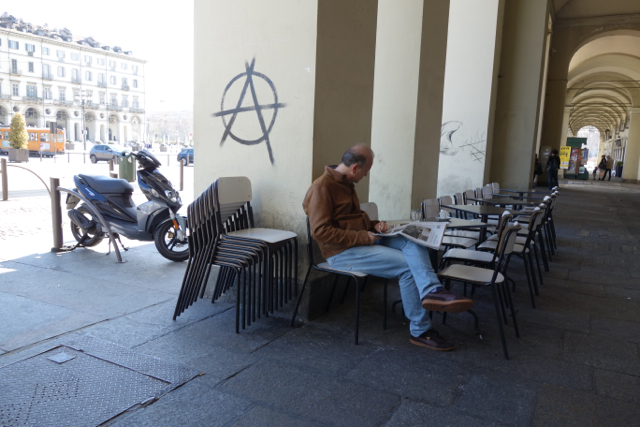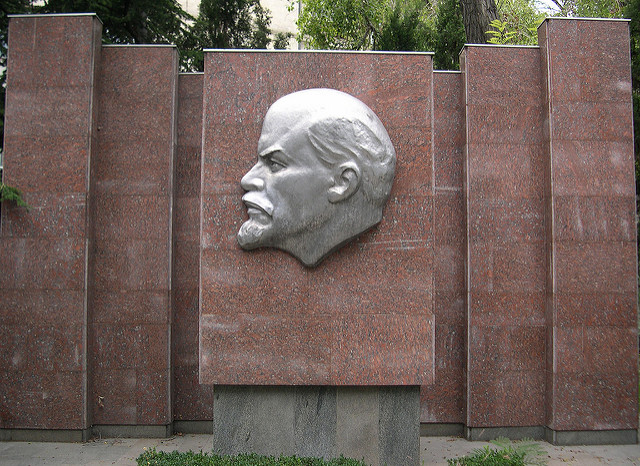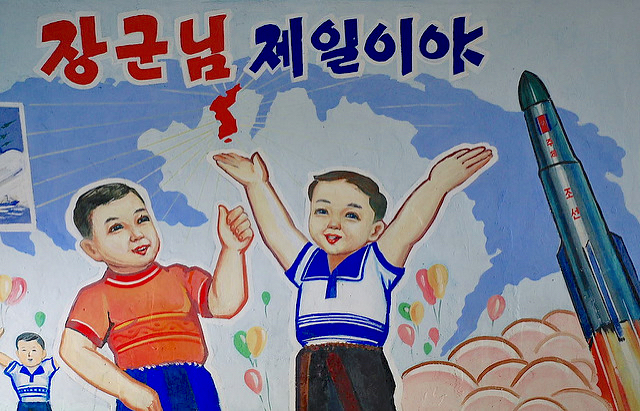David Graeber is unlikely to get a fair shake. Despite publishing respectable works in anthropology, as well as a lauded tome on debt, his newest book, The Democracy Project, offers an insightful analysis of democracy and the Occupy Wall Street protests through the eyes of a self-identified anarchist. For many, this will be a hard pill to swallow.
Anarchists, or at least the caricature version peddled by corporate news media and the film industry, are rarely taken seriously in the US because anarchists are ostensibly concerned with one thing and one thing only: smashing windows.
Judging from the amount of ink spilled in the 14 years since handfuls of anarchists smashed up some Seattle storefronts during a successful demonstration—an event attended by tens of thousands of non-window-smashing protestors—the only thing that surprises me more is the fact that US citizens have yet to erect a Ground Zero-sized memorial to those precious windows. Indeed, the destruction of such iconic monuments has become a permanent fixture in American narratives about anarchism, garnering more domestic press than, for example, the US-supervised looting of the National Museum of Iraq and the destruction of the Iraq National Library and Archives – institutions that, unlike Niketown or Starbucks, contained some of the most important artifacts and the oldest documents in the history of human civilization.
Without a doubt, it is incredibly difficult to find even the most complimentary engagement with anarchism that doesn’t include some caveat about how people ‘typically’ think of anarchists as hooded youths smashing windows, despite the fact that constant references to such imagery are precisely that which intentionally or unwittingly perpetuate the stereotype itself. Perhaps it is the result of living in a country where the dominant ideology of law enforcement is rooted in the (horrifically flawed) theory of ‘broken windows’, but the public’s heartfelt sympathy for panes of glass—unlike, for example, the workers who manufacture them or the people who toil away at shit jobs while staring out at the world through them—is seemingly without limit.
In addition to gratuitous anarchist-as-boogeyman references and the shallow grumblings of various book critics, the speculative and spotty histories of anarchism offered by previous reviewers of The Democracy Project further murky the waters for prospective readers. Especially since they seem to function as a means to attack Graeber for any number of offenses attributable to self-identified radicals, whether it’s penning “indignant” responses to critics, promoting “tolerance for confrontational protest,” fostering hypocrisy and uncertainty, or even harboring “a trace of asceticism” in one’s vision of the future (because imagining a world without unfettered consumption is, of course, a tortuous idea akin to flagellation.)
Those who are willing to look more closely at the text or find value in Graeber’s analysis beyond his insightful discussion of the Occupy Wall Street (OWS) protests will find that The Democracy Project offers a timely analysis of democratic ideas and practices that have implications well beyond anarchist circles or the confines of a park in New York City.
Graeber’s first-person account of Occupy in the book’s early chapters will likely be the biggest draw for most readers and critics, and for good reason. His discussion captures not only the spirit and perspectives of the people involved in the early stages of the Zuccoti Park occupation, but the kinds of substantive nuances about strategy, communication, political philosophy, and interpersonal dynamics that are either outside the scope of most analyses of Occupy or, quite often, contained within conversations that are privy to only the core groups of activists who typically organize radical political demonstrations (a factor largely due to activists’ legitimate need for discretion). Graeber first describes in detail the motivations and tactics of the group of activists—including many veteran organizers from the global justice movement of the previous decade—who collectively co-organized the first open forum General Assembly meeting at Bowling Green park in August, 2011 to plan out an action for September 17, the day Adbusters previously proposed as a convergence on Wall Street.

That initial step marked a distinct point of difference between activists who arrived with the intention of facilitating a genuine dialogue about the upcoming protest versus the Leftist organization that essentially hijacked the plenary date by holding a pre-planned rally and a march. By splintering off from the rally and proceeding to hold a general assembly that utilized anarchist-inspired ‘horizontal’ tactics, this moment not only previewed the kind of egalitarian structures and practices seen in Zuccoti Park the following month. It also serves as Graeber’s point of departure for discussing how and why he (along with many others throughout the world) thinks this organizing model provides the best framework for promoting democratic values.
Through his discussion of Occupy, which combines personal testimony with both micro and macro socioeconomic analyses, Graeber begins to explicate the processes associated with horizontal politics and the ways that such actions attempt to put into practice the critiques that anarchists (and others) have of traditional Leftist politics. Most specifically, the idea of trying to galvanize support for positions advocated by Leftist organizations instead of actually facilitating dialogue about what those positions could be, and which tactics would be most effective in terms of achieving (or working toward) particular goals in like-minded coalitions.
Graeber takes the time to explain what the process of ‘consensus-building’ actually is, in addition to how it works, how it fails and why, for example, people should not be expected to regularly sit through long and sometimes painstaking group meetings as a prerequisite for living in a functioning democracy. Though detailed, one would hardly think this discussion would prove to be an “excruciating” experience for a reader, as one critic recently noted, unless of course, one similarly finds the act of attending a participatory public meeting an exhausting activity in itself. Unlike, for example, voting every four years.
A self-described anarchist with a “little a,” Graeber advocates for radicals to work in coalitions with other activists who are willing to embrace horizontal principles. His interest in anarchism is not only because it is a paradigm based on promoting the values of mutual aid and nonhierarchical, non-violent social relationships, it is also—and perhaps most importantly, strategically speaking—an ethics of practice: a way of doing politics outside the formal political structures of the state.
One can certainly criticize this approach to state power. But it is categorically different than the liberal approach to politics that typically emphasizes support for pseudo-progressive candidates, signing petitions, and/or attending permitted demonstrations. Calling attention to such differences is hardly controversial, though it is unsurprisingly “maddening” to those like music industry executive and Nation reviewer, Danny Goldberg, who would like to us to believe that the philosophical and strategic boundaries between anarchists and liberals simply boil down to “tribalism and the narcissism of small differences.”

In fact, one of Graeber’s strongest points as a writer, both here and elsewhere, is his ability to effectively to define vague terms and parse out concepts in clear language, whether it is making distinctions between direct action and civil disobedience, explaining what it means to engage in ‘prefigurative politics’ and calling attention to the ways in which even the language we use to talk about social phenomena can be extremely problematic.
When it comes to the subject of democracy itself, Graeber’s shorthand geneology of democratic politics in America is illuminating in that he reminds readers of just how little support the so-called founding fathers actually gave to democracy, whether in principle or in the country’s hallowed Constitution. Graber provides a broader context for assessing how their support for voting—rather than consensus-building and collective deliberation—has been difficult to call into question because of the ways in which Americans have so thoroughly entangled their idea of democracy (as a philosophical and political project) with their ideological assumptions about the role of the US as the pinnacle of ‘Western Civilization’ (which he nicely dismantles in Chapter Three).
Like his discussions focused around the ethics and practice of democracy, Graeber is exceptionally good when it comes to drawing our attention to big picture socioeconomic issues. As a case in point, Graeber rightly notes that the remarkable efficacy of neoliberalism as a political undertaking has been the manner in which its defenders and advocates have convinced the world that not merely capitalism, but the “exact financialized, semifeudal capitalism we happen to have right now is the only viable economic system.”
In addition to smashing labor unions, increasing work hours, and relentlessly exploiting people around the globe, this project is nothing less than a “relentless campaign against the human imagination” in which “all those things that were to be liberated in the last great world revolution, were to be contained strictly in the domain of consumerism, or perhaps in the virtual realities of the Internet.” In perhaps the most poignant assessment of what the gradual imposition of this multifaceted system entails, Graeber echoes the tenor of the Situationist International:
“We are talking about the murdering of dreams, the imposition of an apparatus of hopelessness, designed to squelch any sense of an alternative future.” Radically transforming this situation, he argues, would be disastrous for those in power because “our rulers have gambled everything on making such an outburst of imagination inconceivable.”
In contrast to those who propose utopian schemes or readymade political solutions to complex socioeconomic problems, Graeber wants to see democracy flourish as a process of collective deliberation and egalitarian problem solving. Consequently, he focuses on helping to create the sociopolitical conditions in which people can make decisions for themselves. However, Graeber does offer clear suggestions for how to proceed throughout this book (and elsewhere: See his discussion of a debt jubilee in Debt: The First 5000 Years,) whether via examples that emphasize the merits of dialogue and consensus-based decision-making, or by advocating for “pieces of conventional wisdom that surely need challenging if we are to create any sort of viable free society.”
This includes a radical rethinking of bureaucracies and the morality of both debt and labor, especially the dominant productivist ideology that asserts that work is a virtue in itself and, by extension, the primary mechanism through which workers are (sic) “rewarded with consumer paradise.” Rethinking Communism is particularly insightful, because Graeber argues (in similar terms used by certain autonomist theorists) that we already live under communism, as it is the baseline premise upon which our social relationships always and already exist. Capitalism is just an especially “bad way” or organizing such relationships:
“We are already practicing communism much of the time [in everyday exchanges and dealings with others]. We are already anarchists, or at least we act like anarchists, every time we come to understandings with one another that would not require physical threats as a means of enforcement. It’s not a question of building an entirely new society whole cloth. It’s a question of building on what we are already doing, expanding the zones of freedom, until freedom becomes the ultimate organizing principle.”
Graeber extolls the guaranteeing of equal access to the different resources that people would need to pursue an “endless variety of forms of value,” both collectively and individually. In a world where billions adhere to religions, philosophies and ideologies that, among other things, attempt to give meaning the basic question of “How should we live?”, it would seem that arguing for a world in which people have equal standing to simply discuss, debate, and collectively search for such answers (and implement practical solutions) is, after all, not all that radical.
Rather, Graeber reminds us that the radical proposition is the one that says we should dutifully subject ourselves to institutions of control that position us as not as reasonable human beings with culturally, even biologically engrained obligations to one other, but as individualized competitors who battle for cash prizes within a crumbling system based on myths, and in the name of ideals that are vaguely defined and not open to democratic reformulation.
Graeber’s assessment of the prospects for genuine democracy—and the limitations of the faux-democratic processes buttressing electoral politics—is sobering, too. Inasmuch as it reminds us of how deeply we have learned to confuse the latter for the former, and how easily we might re-tune our imaginations to envision something different, something better…even something beautiful.
Photographs courtesy of Joel Schalit





